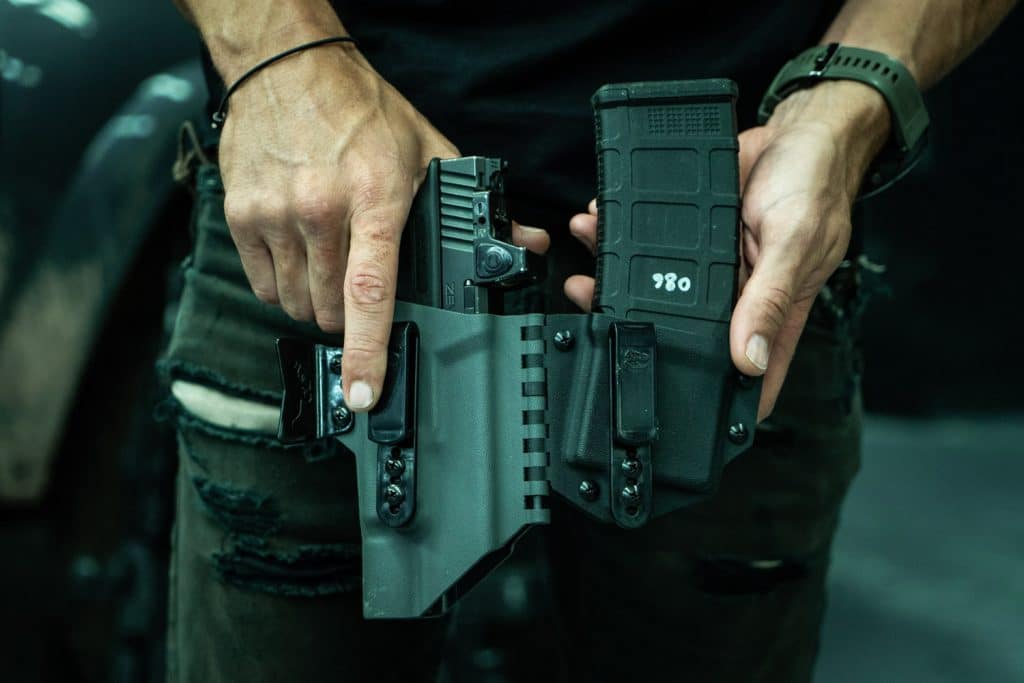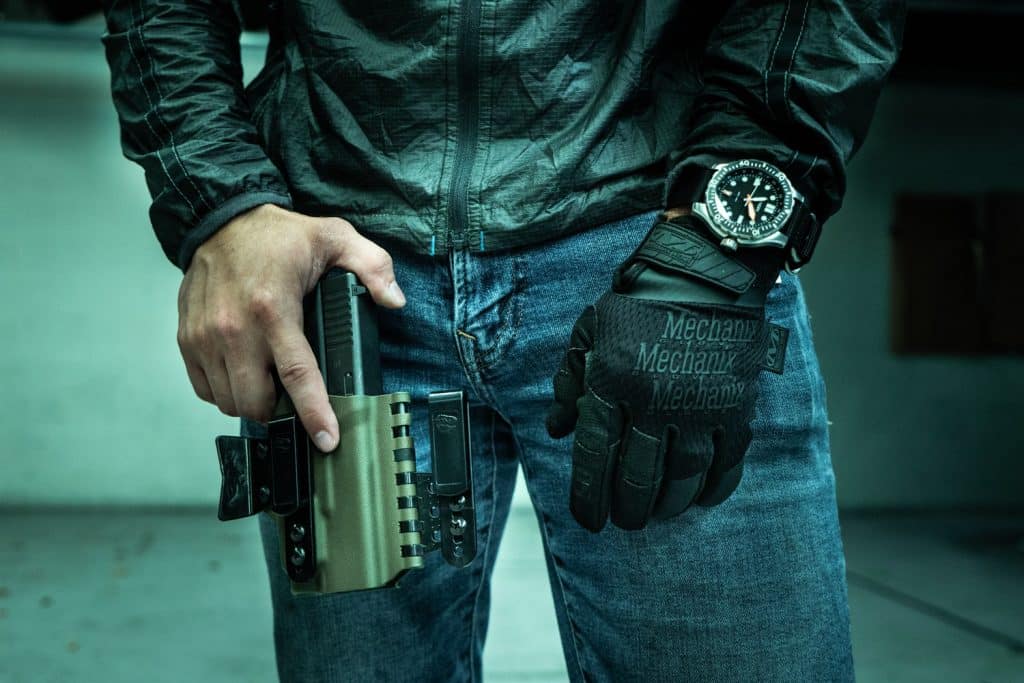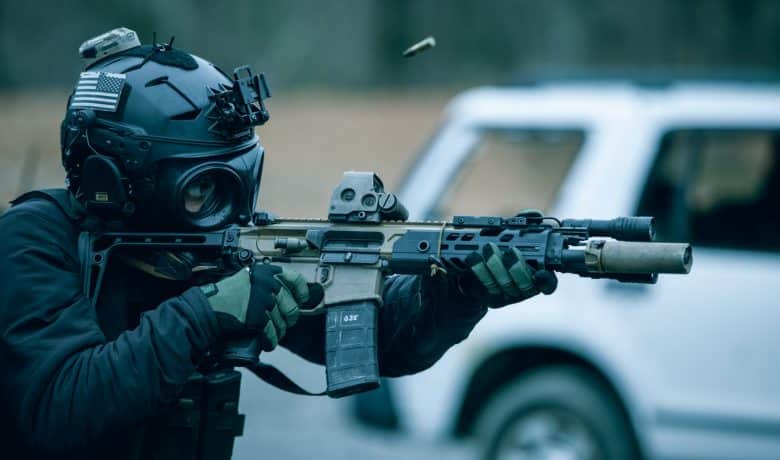In the United States, citizens may carry weapons in one of two ways: openly, allowing a casual spectator to view the gun, or concealed, concealing the gun.
Because there is no federal rule governing the issuance of concealed or open-carry permits, states decide how far they can go. Carrying a Concealed Weapon, like AR-15 folding stock, are legal in all 50 states to some extent, but some are far more stringent than others. Only California, Florida, Illinois, Texas, South Carolina, and New York allow open handguns in public (together with Washington, D.C.).
Here are some things worth understanding to see the hint if it’s legal to have a gun in your house in the U.S:
What is concealed carry?
State concealed-carry laws are divided into three categories: unrestricted (no permits or licenses are necessary. However, there may be restrictions on where individuals may carry firearms in public), shall issue, and may issue.

Except in areas where permits are issued individually, concealed carry is illegal in all states. Permits are granted or denied by local governments.
May-issue: State regulations’ permissiveness varies from generally liberal to exceedingly difficult to obtain unless the petitioner presents strong justification.
In New Jersey, for example, all non-law enforcement professionals must demonstrate a justifiable need for self-defense, which the state police describe as an urgent need that cannot be supplied by any other means than the issue of a pistol license.
The Shall-issue States require permits only when certain conditions are satisfied, which frequently includes a minimum age requirement and a background check; some states also require firearm safety instruction.
What is an open carry?
Open carry of any handgun is prohibited in three states (California, Florida, and Illinois) and the District of Columbia.
The degree of restriction imposed by individual open-carry legislation varies greatly per state. While both Hawaii and Georgia require licenses, Hawaii’s system is more stringent, whereas Georgia gives permits on a case-by-case basis.
Open carry is not required in certain states for all non-prohibited citizens—those convicted of felonies and non-citizens with no intention of permanently migrating.
Because many states lack a statewide open-carry statute, regulations are usually implemented at the municipal level. Although Oregon does not have a statewide ban on open carry, the city of Portland does.
Certain states, including New York and Illinois, prohibit open carry, making exceptions under certain conditions. Others, like Texas, forbid open carry of pistols but not long rifles.

The Current Situation of Gun Law in the US
Only eight shall-issue states and one state, Vermont, had concealed-carry limitations in 1986; the rest of the country implemented stricter concealed-carry legislation. Regarding gun legislation, the situation has improved; there are now just nine may-issue states left, and the rest have changed to shall-issue states, limiting law enforcement discretion.
Debates continue inside states concerning the proper role of weapons in society and every house in the U.S., the courts, and politicians.
Guns are deeply ingrained in American society and politics. The United States Constitution’s 2nd Amendment guarantees Americans the right to keep and bear arms, and nearly one-third of American adults own a firearm. Simultaneously, President Joe Biden and other officials urged tighter limitations on firearm access earlier this year in a bid to curb gun violence, which ranges from skyrocketing murder rates in some major cities to mass killings.













When is this article going to be edited? It appears to be written from a liberal anti gun perspective. Lots of incorrect information.
This article is incorrect in so many ways. Did you just make this up?
Never saw a gun load itself, point itself or shoot someone itself. Anti gun morons just can’t fathom this simple scenario. People shoot, not guns.
You need to seriously check your facts in your first paragraph. You are incorrect, there are far more states that allow open, non concealed, carry. Indiana for example, has no stated method of carry. Kentucky has constitutional open carry. Illinois, and the others you mentioned, strictly forbids open carry!
I found this to be poorly written, and not very informative
“Except in areas where permits are issued individually, concealed carry is illegal in all states. Permits are granted or denied by local governments.”……..WRONG.
Your writer needs to do better research. Texas has had handgun open carry for LTC holders for a few years. On 1 September 2021, the new law took effect allowing any law abiding citizen at least 21 years old to carry a handgun openly or concealed without a license. You have been able to carry a rifle openly in Texas for years. Sloppy research on Texas laws makes the rest of this article suspect.
You forgot to answer the question as to whether guns are legal to own in your home. The answer is yes they are and you do not need any sort of license to own them.
Mr. Landry, I only feel the need to leave a comment because I wasn’t able to read past the first paragraph. In that paragraph alone, you have two blatantly wrong facts. Openly carrying a firearm in public is legal in all 50 states. And an A.R. 15 with a folding stock is not easily concealed. Please, The world needs to read articles from people who are informed about the matters they report on. Don’t be part of the problem that detracts from the credibility of the media these days. Thank you for taking the time to read this!
Poorly written article. Inaccurate facts with a clickbait title.
The 2nd amendment guarantees the right to keep and bear arms… so a title of “Is It Legal To Have A Gun In Your House In The U.S.?” – then never answering the question – is the epitomy of digital fishwrap.
Texas, for example, has constitutional carry laws in effect. Doesn’t matter if it’s open or concealed – if you are a law abiding citizen it is your RIGHT to carry a firearm for self defense and the defense of others. Handgun or long gun.
Author: do some actual research before writing this trash. Thanks!